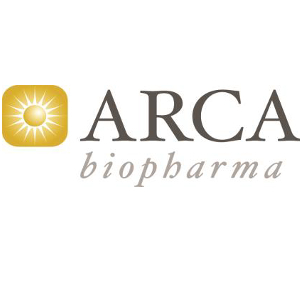
The 75th patient has been enrolled in GENETIC-AF, a phase 2B/3 clinical trial evaluating bucindolol (Gencaro, Arca Biopharma) as a potential treatment for atrial fibrillation. This enrolment marks the midpoint of the minimum number of patients to be evaluated in the Phase 2B portion of the trial.
Based on the current rate, the company expects to enrol at least 150 patients in the trial by the end of 2016. Arca expects the outcome of a pre-specified GENETIC-AF Data Safety Monitoring Board (DSMB) interim efficacy, safety and futility analysis of data from approximately 150 patients in the second quarter of 2017. Based on the outcome of the interim analysis, the DSMB will recommend whether or not the GENETIC-AF trial should proceed to the phase 3 portion of the trial.
GENETIC-AF is a Phase 2B/Phase 3, multicentre, randomised, double-blind, adaptive design clinical trial comparing the safety and efficacy of bucindolol to metoprolol succinate (Toprol-XL) for the treatment of atrial fibrillation (AF) in approximately 620 patients. Eligible patients will have heart failure with reduced left ventricular ejection fraction (HFREF), have a history of paroxysmal AF (episodes lasting seven days or less) or persistent AF (episodes lasting more than seven days and less than one year) in the past six months, and have the beta-1 389 arginine homozygous genotype that the Arca believes responds most favourably to bucindolol. The primary endpoint of the study is time to first event of symptomatic AF/atrial flutter (AFL) or all-cause mortality. The combined phase 2B/3 trial is designed for 90% power at a p-value of less than 0.01 significance level to detect a 25% reduction in the primary endpoint for patients in the bucindolol arm, compared to patients in the Toprol-XL arm. The trial is currently enrolling patients in the USA and Canada.
The DSMB will conduct a prespecified interim analysis of study endpoints for efficacy, safety and futility to recommend whether or not the trial should proceed to phase 3. The DSMB will make its recommendation based on a predictive probability analysis of certain trial data after at least 150 patients have evaluable endpoint data. An enrolled patient has evaluable endpoint data either when they experience their first endpoint event, or after they complete the 24-week follow up period. The DSMB interim analysis will focus on analyses of the AF/AFL endpoints in the trial using both clinical-based intermittent monitoring and device-based continuous monitoring techniques. Should the DSMB interim analysis indicate that the data are consistent with pre-trial statistical assumptions and the potential for achieving statistical significance for the phase 3 endpoint, the DSMB may recommend that the study proceed to phase 3. The DSMB may also halt the study for futility.












